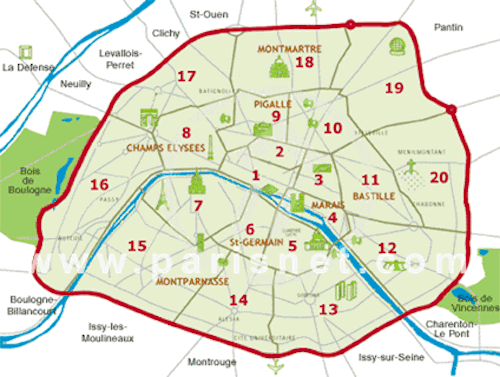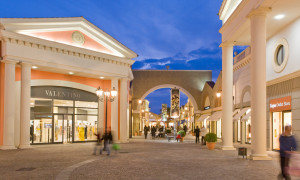Ahh, the City of Light. The romance, the beauty, the history. Who would not want to be living in Paris?
As soon as I began telling people we were moving to Paris, longing sighs were heard all around. Everybody had either visited or at least had it on top of their to-travel list, and the city was viewed strictly through rose-tinted glasses.
Including by me.
The thought of living in Paris, the city I had visited at least once every year throughout my life, and where I spent most of my holidays gazing up at apartments dreaming of what it would be like to live there, was nearly too much for me. I was so excited, I could barely cope. Then I arrived.
I had the luck to arrive a couple of days after the Charlie Hebdo attacks, and security was up. But that was not necessarily anything new; most earlier visits had been enhanced by armed police patrolling the streets and regular bag checks at the department stores. It is a big cosmopolitan city and sh*t happens, and while it was a sad welcome, I did not let it put me off.
I had apartment hunting to look forward to. Complicated, expensive and a steep learning curve. Funnily enough, the one thing I thought would be the most difficult turned out to be the easiest: Every apartment was dog-friendly, even welcoming. As for wanting a sink near a toilet, that was another thing entirely.
One of the crowd

Once I had tried and failed to cram a 40-foot-container’s worth of stuff into my new home and started to find my feet, I realized that being one of the 2.2 million that live in Paris Proper – i.e. having a postal code beginning with 75 within the périphérique limits, rather than one of the more than 30 million visitors – being in Paris was different.
Not that the rose-tinted glasses shattered, oh, no. Not yet. But they became a little fogged-up. I moved to the 17th arrondissement, the Ternes or l’Arc de Triomphe side. No tourists unless you stepped within 50 meters of the arch, but a lot of expatriates.
According to INSEE, there were around 4.42 million foreigners living in metropolitan France back in 2015. To get an accurate and up-to-date figure is difficult as many hail from the member states of the European Union (and one former member state), and members of the EU and EFTA (European Free Trade) states can live, work and study in France without needing a French visa or permit and often don’t register with their embassies. The 16th and 17th arrondissements are particularly popular with expat families because of the proximity to international schools, so quite often you hear English rather than French in the streets.
And that brings me to language: I never learned French at school but took lessons to at least start off with the basics. While a lot of people in the touristy areas speak English, in the residential areas – and when it comes to dealing with any kind of official paper work, trying to sort out your daily life, and work – it is a lot easier if you at least have an initial sprinkling of the language.
It is appreciated by the locals, even if they immediately try out their English on you or START SPEAKING REALLY LOUDLY. Yes, they do that here as well, indicating that you are obviously thick.
Are they really so rude?

Once you are a Parisian by adoption, you also realize they might come across as rude but they are not really. There are certain codes that must be accepted to live together in close proximity, one of them being the ignoring of your neighbours. You realize pretty quickly that living in a beautiful old apartment with beautiful old wood floors and beautiful large windows, often opening onto a beautiful and echoing courtyard – is loud, and you get to hear things from your neighbours you’d rather not.
There are your above neighbours simply walking to the kitchen or flushing the loo; there are arguments and the opposite end of the coupledom scale; there are kids playing up, and their parents losing it, and then some. Add that most do not have curtains and cannot be asked to close the shutters, you also get to see a lot more of your neighbours, especially on hot summer days, than you ever dreamt of.
So, people ignore each other as a coping mechanism. Live and let live.
Alas, the ignoring also extends to the refusing to get out of your way as you approach laden down with shopping, but someone is having a nice chat; or ignoring your breathing difficulties as you sit on a café terrace in the fresh, smoky air.
But, hey. On the other side of the scale, there are certain etiquettes that need to be adhered to in order not to be ignored. Try asking a shop assistant even the simplest question without saying “Bonjour” first, and you will be ignored. Try ordering coffee without a Bonjour, by shouting loudly in English, or, heaven forbid, snapping your fingers, and even if you do get a coffee eventually, it will have been spat into and quite rightly so.
But say “Bonjour,” and Re-bonjour if you keep meeting the same person, wish the shop keepers a nice day, say “thank you” and “goodbye” and you will get service. Eventually. Unless you go to one of the posh shops.
It took me five years, a two-month lockdown, and some 60 nightly clapping sessions to actually really notice my neighbours opposite (except for the dude who obviously likes to go al fresco in the summer, I knew him!), and even say hello in the street. But that would not have happened without COVID-19, so being patient with your neighbours is a skill worth learning.





























